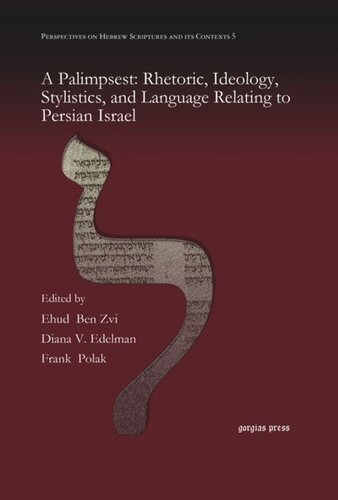

Most ebook files are in PDF format, so you can easily read them using various software such as Foxit Reader or directly on the Google Chrome browser.
Some ebook files are released by publishers in other formats such as .awz, .mobi, .epub, .fb2, etc. You may need to install specific software to read these formats on mobile/PC, such as Calibre.
Please read the tutorial at this link: https://ebookbell.com/faq
We offer FREE conversion to the popular formats you request; however, this may take some time. Therefore, right after payment, please email us, and we will try to provide the service as quickly as possible.
For some exceptional file formats or broken links (if any), please refrain from opening any disputes. Instead, email us first, and we will try to assist within a maximum of 6 hours.
EbookBell Team

0.0
0 reviewsA volume of collected essays that explores what we can learn about the producers and readers of biblical books by looking into matters of language, rhetoric, style, and ideology. What do they teach us about these literati’s world of knowledge and imagination, about the issues they had in mind and the ways they came to deal with them through authoritative literature? The book includes essays on such issues as whether linguistic theories can solve literary-critical problems, on what is “late biblical Hebrew,” on parallelism and noun groups in biblical poetry, and the communicative meaning of some linguistic choices.